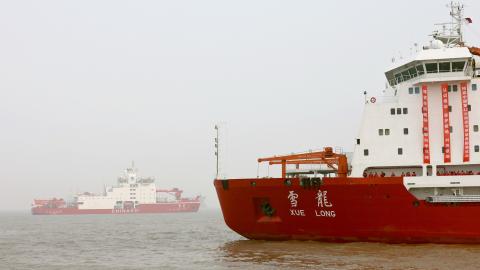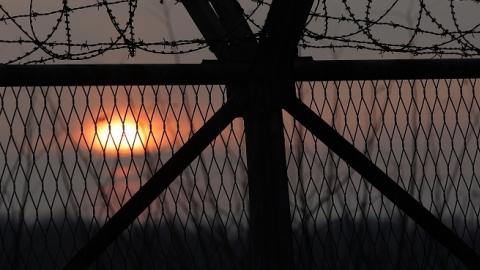North Korea claims it tested a hydrogen bomb last night. If it is true that it was a nuclear weapons test—and it increasingly looks like whatever it tested was not an H-bomb-- it will be its fourth known nuclear test since 2006.
A hydrogen bomb is capable of massive yields—in the hundreds of thousands of kilotons. Even with the limited information about the test that is available, the explosive test’s yield did not reach those levels. However, according to David Albright at the Institute for Science and International Security, it is certainly possible that if it was an H-bomb it was not tested to its full yield. While we wait for confirmed information about the test, there are still important realities and policy implications worth considering.
The first is that while much of the international attention has been centered on Iran and the broader Middle East, North Korea is one of the world’s most brutal regimes and is committed to achieving the ability to effectively threaten the United States with a nuclear missile. The regime has made this clear in statements, has threatened to employ nuclear weapons, and while its own people live in dire conditions, it has spent massive resources on its nuclear program. Its willingness to flout international sanctions and continue in relative isolation further proves its determination.
North Korea has been working to improve its nuclear program in parallel with its missile program. Missiles are the delivery systems for nuclear weapons. While it is difficult to accurately asses the size of the North Korean nuclear arsenal it remains that, whatever its size, they have not yet proven to possess the ability to deliver those weapons on a missile. This does not mean there is no threat. When asked if North Korea had finally achieved the ability to deliver a nuclear weapon to the United States, Admiral William Gortney, Commander of U.S. Northern Command recently said, “We assess that they have the capability to reach the homeland with a nuclear weapon from a rocket.” Note, he did not say they have proven their capability works; but Pyongyang has been making great improvements towards this end, repeatedly surprising the intelligence community with its progress. Northern Command certainly takes the threat very seriously -- as it should.
Nor is this the only threat. The regime is certainly not content merely possessing a few nuclear weapons and a few long-range missiles. It knows that its current long-range missile, the Taepo-dong, is easily detectable. The Taepo-dong is slow to set up and it’s more likely to be caught on satellite images. This is why in addition to increasing the quantity of their missiles North Korea has also been working to improve them. Particularly concerning is that it has likely achieved what is called the KN-08, a road-mobile intercontinental ballistic missile, which can be rolled out and prepared for launch very quickly, giving U.S. intelligence capabilities far less time to detect it and for the military to prepare to respond.
North Korea doesn’t just keep its illicit nuclear missile program to itself, either. It is a leader in ballistic missile and ballistic missile technology exports. In fact, Iran has partnered with North Korea in missile development and we should fully expect that whatever North Korea is able to achieve, Iran will certainly have the know-how as well. Considered in connection with the Iran deal, North Korea’s behavior serves as a reminder that U.S. policies toward one country do not merely affect that specific country. The entire world watches and various dynamics are impacted by U.S. actions or inaction.
Even by the Obama administration’s own standards for what it considered a “good deal”, the final Joint Comprehensive Plan of Action (JCPOA) fell woefully short. Let us not forget that the deal, once implemented, relaxes restrictions on Iran’s missile program But even now, before the Iran deal goes into effect, Iran is testing missiles in clear and blatant violation of U.N. Security Council Resolution 1929. The Obama administration threatened to impose sanctions in response, but when Iranian officials said they would not be deterred and would expand the missile program, the administration backed down, almost certainly fearing Iran would walk away from the Obama administration’s hallmark diplomatic “victory”.
Without doubt, North Korea has witnessed how the Obama administration’s policies affect U.S. friends and foes alike. Specifically, the regime has surely noted the United States repeatedly acquiesce to Iran during the course of the Iran deal negotiations, and then turn a blind-eye when Iran provokes and fuels turmoil throughout the Middle East. North Korea cannot help but be emboldened by the fact that Iran has not received anything more than verbal condemnations for its continuing U.N. Security Council violations.
There is little doubt, then, that North Korea has made the calculation that now, during the last months of the Obama administration, is a good time to conduct another test—possibly one of its most advanced nuclear tests to date —and that the gain in doing so is worth any potential, and likely meager, consequence from the United States or the U.N..
Tragically, recent history shows this is probably the case.















